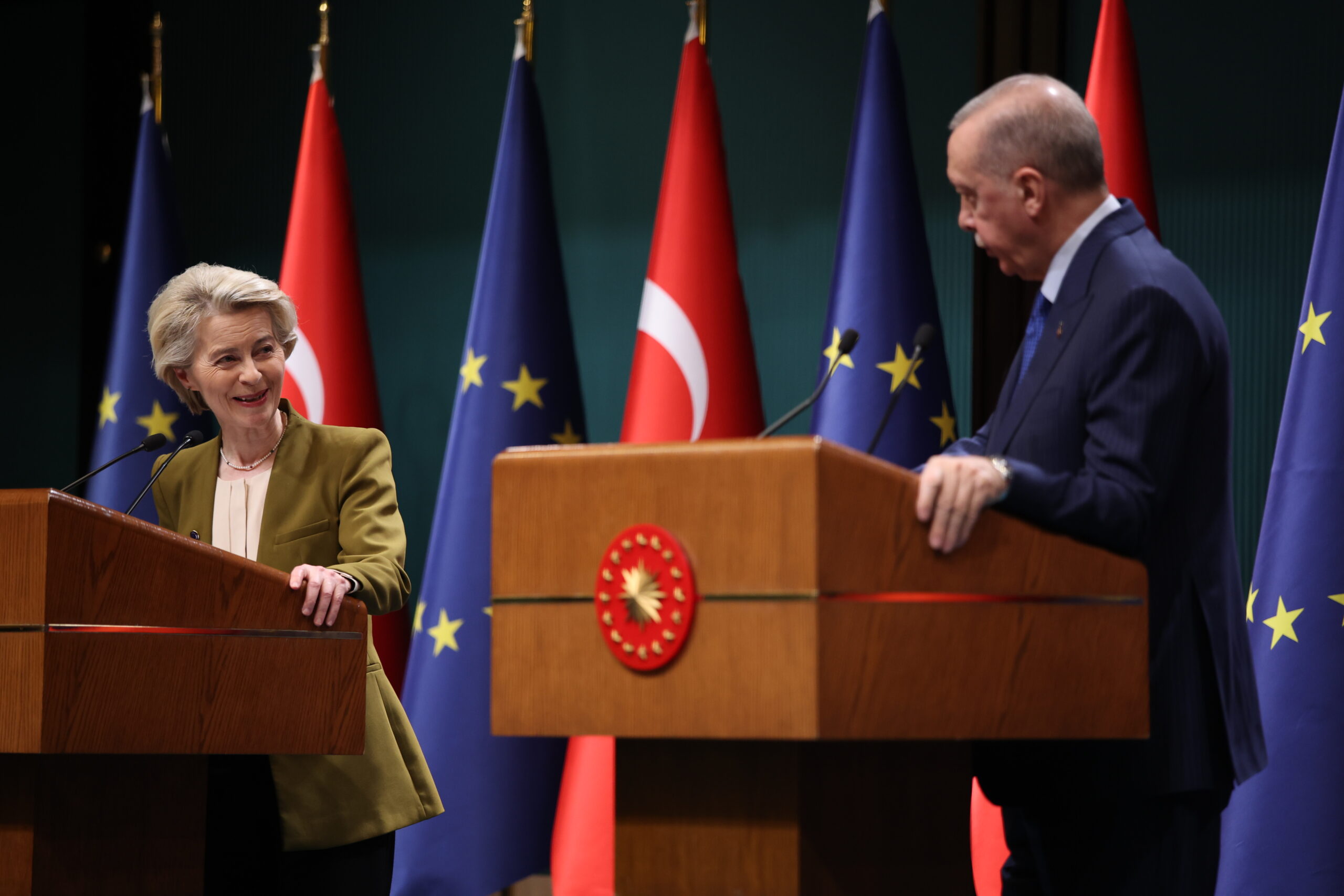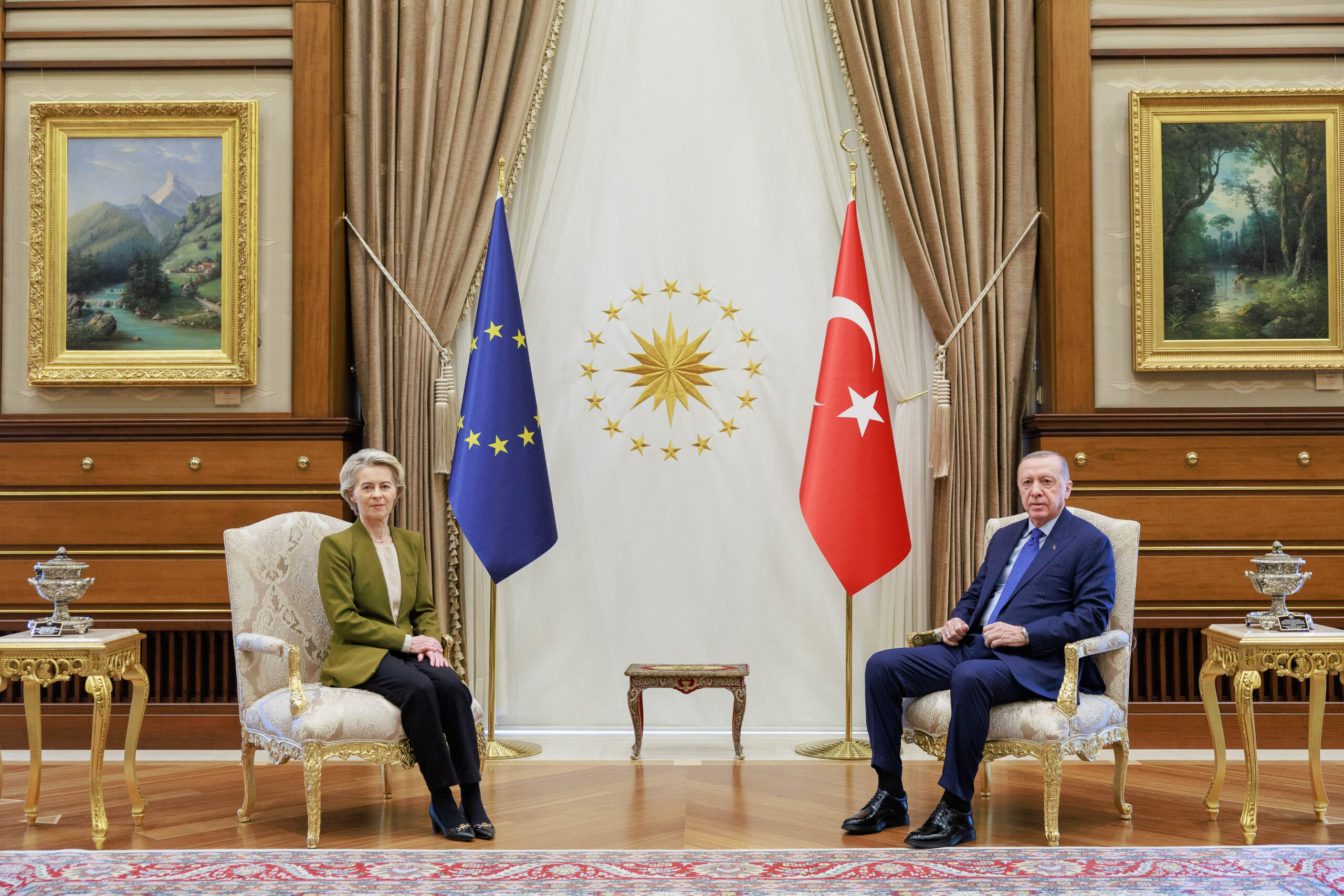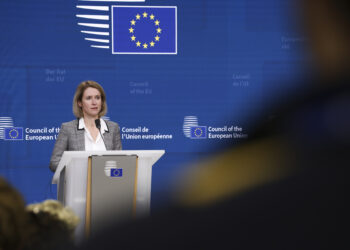Brussels – No new “sofagate“ in Ankara. After the institutional snub of 2021, Ursula von der Leyen’s personal visit to Recep Tayyip Erdoğan is a promise of a closer future between the EU and Turkey, as a pragmatic response to common challenges: stabilising the Middle East and managing the millions of refugees fleeing a battered region. First and foremost, from Syria.
The chairwoman of the European Commission makes her offer: an additional billion to support Ankara’s reception system. Erdogan wants money and raises the bar, hoping for a “tangible and immediate” improvement in relations with Brussels.
Von der Leyen travelled to Turkey to take stock of the new course in Syria after the fall of the Assad regime, without the President of the European Council, Antonio Costa, and the High Representative for Foreign Affairs, Kaja Kallas, the two figures who, according to the treaties, would be the sole guardians of the bloc’s foreign policy. “We have been informed; there is a path with Turkey on the management of migratory flows, and therefore, it makes sense to make such a visit,” a source close to the Portuguese leader cut it short. No controversy then, but it is clear that von der Leyen has played ahead to impose her line of pragmatism and concreteness in the face of the authoritarian Turkish president and the role he has played for years in blocking millions of asylum seekers at the gates of the European continent.

“I would like to acknowledge that Turkey has consistently taken responsibility for hosting millions of Syrian refugees over the years, and we have stood by you in this effort,” the EU leader said at a joint press conference with Erdogan. Since 2011, the EU has provided nearly €10 billion to Ankara to host more than three million people displaced by the Syrian civil war. In light of the overthrow of the Assad regime, von der Leyen hurriedly put a new offer on the plate: “I am very pleased to announce today that an additional billion euros is on the way for 2024. This will support, among other things, health care and education of refugees in Turkey, continue to contribute to migration and border management, including voluntary repatriations of Syrian refugees,” she continued on the sidelines of the meeting with Erdogan.
On the other hand, Erdogan has shown over the years that he knows how to strike the iron while it is hot. And even today, he immediately called for a new impetus “for an immediate and tangible improvement of relations between Turkey and the European Union.” Ankara has been a candidate for accession to the EU since 1999. However, the process came to a serious standstill in 2018 due to continued democratic backwardness and the repressive regime built in the country by Erdogan.
In recent years, Brussels has kept the accession process frozen, trying—in order to not permanently jeopardize ties with the important partner—to promote closer strategic and economic ties at the same time. But during the press conference, the Turkish leader directly asked European leaders, who will meet on Thursday for the European Council, to set aside “all restrictions” in bilateral relations with Ankara to restart the high-level political dialogue—suspended since 2019—and to close the door on two long-term goals for Turkey: upgrading the Customs Union and introducing visa facilitation.

Ursula von der Leyen and Recep Tayyip Erdoğan
“Our common interests should not be prisoners of the limited agendas of some members,” stressed Erdogan, at loggerheads especially with Cyprus and Greece over historical and territorial disputes. For the Turkish president, there is room to “advance our cooperation with a win-win formula.” In short, it is no longer a relationship in which—according to him— Brussels exclusively pursues its own interests.
The authoritarian president also took the opportunity to demand a free hand in his military actions in Syria: “Turkey is the only country to have succeeded in defeating Islamic State and PKK terrorist organizations on the ground. Syria cannot become a hotbed for terrorism. We will not allow terrorist organizations to flourish,” he said.
Faced with the remote but ever-present threat of Turkey letting millions of migrants leave for Europe, von der Leyen can do nothing but pay his respects to the president and yield to continued concessions. “Turkey has an essential role to play in stabilizing the region,” she said, stressing that “Turkey’s legitimate security concerns must be addressed.” For von der Leyen, economic relations with Ankara “are stronger than ever,” as evidenced by €206 billion in trade in 2023. “We intend to further strengthen this relationship,” she assured. With a “renewed engagement with the European Investment Bank (EIB) in Turkey, but also with the “resumption of discussions on a modernised Customs Union.”
Just two notes to the Turkish sultan, once established that “we both have much to gain.” Enough of turning a blind eye to the circumvention of European sanctions on Russia because some of the ghost fleet with which Moscow continues to trade oil docks right in Anatolian ports. “And, of course, it is also important to restart talks with Cyprus within the framework of the United Nations,” von der Leyen pointed out. The resumption of accession negotiations at least goes from there, more for Nicosia’s than the chairwoman’s obstructionism.
English version by the Translation Service of Withub









